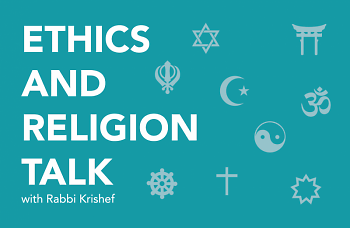Father Kevin Niehoff, O.P., a Dominican priest who serves as Judicial Vicar, Diocese of Grand Rapids, responds:
“The word ‘Messiah’ literally means ‘anointed.’ According to Oxford Languages online, ‘Messiah’ means ‘the promised deliverer of the Jewish nation prophesied in the Hebrew Bible or a leader or savior of a particular group or cause.’
“Roman Catholic Christians believe the Messiah is Jesus Christ. Christians believe the Messiah has come. We live in the hope of eternal life in the Kingdom of Heaven.”
Imam Kip Curnutt, Director of Religious Education and Associate Imam of Masjid At-Tawheed in Grand Rapids, responds:
“Islam has a concept of Jesus's end-times return similar to what is found in Christianity. Jesus is known in Arabic as Al Maseeh, or the anointed one. Although Islam does not accept the Trinity or the divinity of Jesus, it does proclaim his prophethood and his miraculous nature as well as the fact that he was raised up in the flesh to the heavens at the end of his time on earth. In the end of days when the antichrist comes and his corruption has spread across the earth Jesus will return to fight alongside the Mahdi, who is a descendent of the Prophet Muhammad peace be upon him and the leader of the believers at that time. Islam preaches that all of God's prophets taught the same unified message and so from the Islamic prespective whatever tradition the Messiah comes from he is from our tradition as well.”
Fred Stella, the Pracharak (Outreach Minister) for the West Michigan Hindu Temple, responds:
“In the Bhagavad Gita (Chapter IV) we see the definition of an avatar. ‘When righteous declines, when wickedness predominates, I rise from age to age and take visible shape; moving, a man with men, succoring the good, thrusting the evil back, and setting virtue on her seat again.’ Many Hindus do take this to mean that celestially designated humans appear on earth in different eras to rebalance the forces of light. But many other Hindus agree that this verse encourages the Divine to emerge in all of us, not shifting the responsibility to someone else.
“According to our more allegorical scriptures, an avatar named Kalki is predicted to appear on earth at some point to rectify our situation. However, I assure you that one would be hard pressed to find a Hindu who is putting much energy into this expectation. And if Kalki ever does come, I’m pretty sure that he will not have descended from the House of David. So no, he won’t be the person Jews are looking for.”
The Reverend Colleen Squires, minister at All Souls Community Church of West Michigan, a Unitarian Universalist Congregation, responds:
“Unitarian Universalists do not necessarily believe in the appearance of a messiah. While some of us embrace some kind of understanding of God some of us do not. It is possible that the Messiah could come from another faith. History reminds us that Jesus was Jewish, and he was never a Christian during his life. Christianity, centered on Jesus' life and death and afterlife did not happen until after his death. Siddhartha, or the Buddha was born Hindu.”
Rev. Ray Lanning, a retired minister of the Reformed Presbyterian Church of North America, responds:
“There is a categorical difference between the messianic figures in many religious traditions, and the Messiah, the Lord’s ‘Anointed’ Savior and King, whose advent is promised to the people of God in the Hebrew Scriptures, and whose arrival is heralded in the Christian New Testament. Biblical markers for the Messiah of Scripture locate Him in a very specific line of the human race. He must be (1) a child of Adam; (2) a descendant of Abraham and his heirs, Isaac and Jacob; (3) a member of the tribe of Judah, or a Jew, as we say today; and (4) a scion of the house of King David. So it is impossible for the Messiah of Scripture to be anyone other than a Jew by ethnicity, and not all Jews would qualify. As Christ Himself declared, ‘Salvation is of the Jews’ (John 4:22).
“For this reason the gospel writers Matthew and Luke carefully trace the genealogy or ancestry, both paternal and maternal, of Jesus of Nazareth (see Matthew 1 and Luke 3), knowing that His family history is crucial to establishing His messianic credentials. His stature as a prophet and teacher, His works of power and grace, the uniqueness and beauty of His personality, the depths of His redemptive suffering, and His glorious resurrection, taken altogether would not qualify Him as Israel’s Messiah and Savior of the nations on any other basis.”
This column answers questions of Ethics and Religion by submitting them to a multi-faith panel of spiritual leaders in the Grand Rapids area. We’d love to hear about the ordinary ethical questions that come up in the course of your day as well as any questions of religion that you’ve wondered about. Tell us how you resolved an ethical dilemma and see how members of the Ethics and Religion Talk panel would have handled the same situation. Please send your questions to [email protected].
The Rapidian, a program of the 501(c)3 nonprofit Community Media Center, relies on the community’s support to help cover the cost of training reporters and publishing content.
We need your help.
If each of our readers and content creators who values this community platform help support its creation and maintenance, The Rapidian can continue to educate and facilitate a conversation around issues for years to come.
Please support The Rapidian and make a contribution today.
